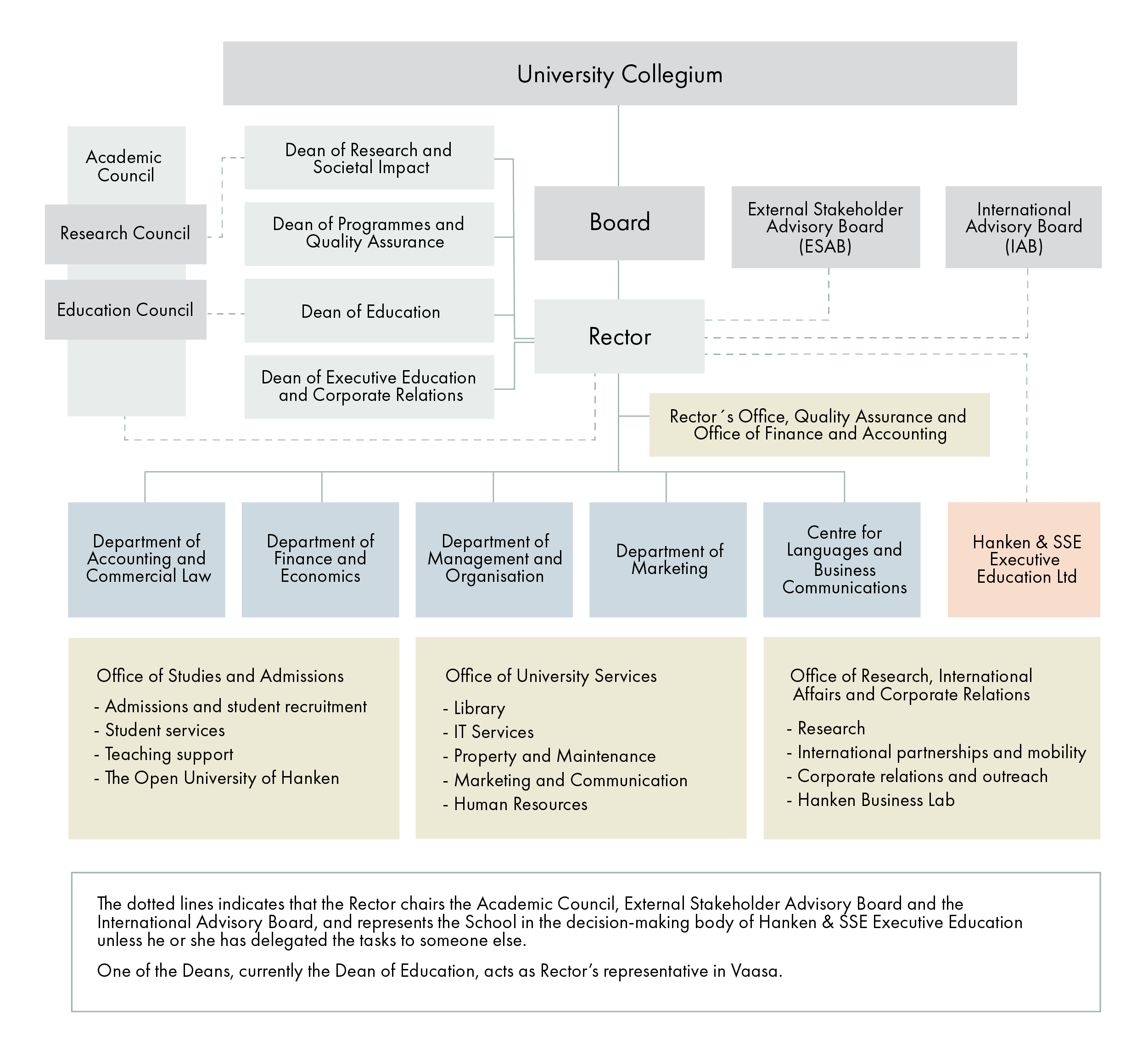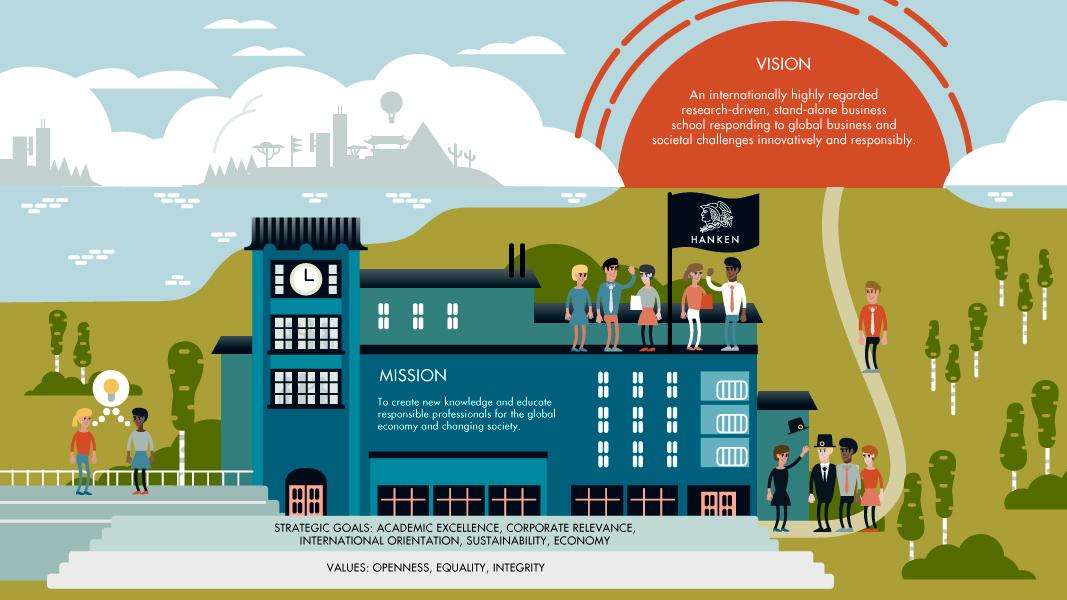Hanken is a stand-alone university level business school with an international and research-oriented profile and close ties to the corporate world. The mission of Hanken is to create new knowledge and educate responsible professionals for the global economy and changing society. Hanken carries the responsibility to educate graduates fluent in Swedish (Finland’s second national language), simultaneously offering tuition in English targeting international students, thus creating an international classroom mixing domestic and international students and faculty. Hanken operates in Helsinki and Vaasa, the administrative language of the school is Swedish. Hanken has a solid foundation with international recognition reflected by international accreditations (EQUIS accredited since 2000, AMBA accredited since 2008 and AACSB accredited since 2015), a sound financial basis, and valuable national and international networks.
Hanken has 1279 BSc students, 1046 MSc students and 106 PhD students registered as active. Hanken has four academic departments and a Centre for Languages and Business Communication, each responsible for the activities on both locations. All departments span two or more subjects and programmes, and host competence centres bringing research and practice together. The administrative and support services are organised in three administrative units and a Rector’s office. All departments and units have annual dialogues with the rector.

The responsibilities of the different bodies are described in the Hanken Quality Handbook. The board sets Hanken’s mission, strategy and action plans. The rector leads the operations supported by the Management team consisting of the deans, heads of departments and units, as managers responsible for implementing quality management within their areas, and the president of the student union. The Academic Council coordinates the quality assurance of education and research.
The key strategic objectives in Hanken’s 2030 strategy are to strengthen academic excellence, internationalisation and corporate world connections, to advocate responsibility and sustainability, and to increase funding from different sources. The balance between Hanken’s fundamental role of being, on the one hand, an institution that shall contribute to securing the future of a minority language and, on the other hand, a university that wants to assert itself internationally, characterises all operations.
